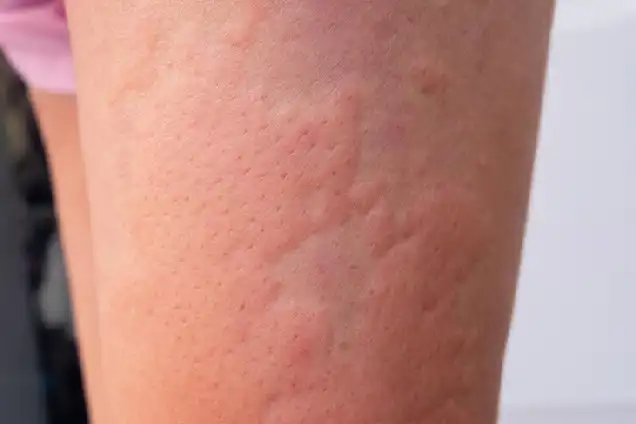
Urticaria, commonly known as hives, is a skin reaction characterized by red, itchy welts or bumps that appear suddenly. These welts can vary in size, change shape, and often disappear within 24 hours, only to reappear elsewhere. Urticaria can be acute (lasting less than six weeks) or chronic (lasting longer than six weeks or recurring over months or years).
Urticaria is often manageable with medications and trigger avoidance, though chronic forms can be challenging and may require specialized care from an allergist or dermatologist.